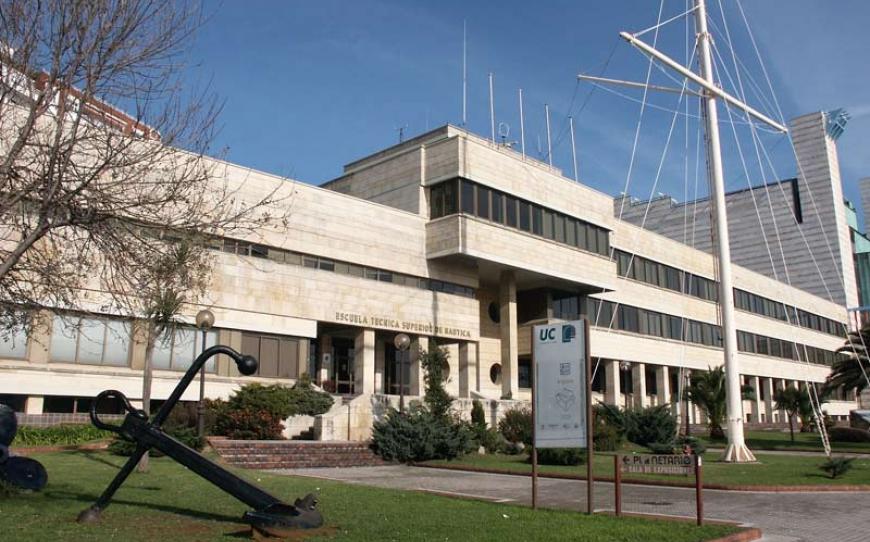The master's degree in Nautical Engineering and Maritime Transport is a professionalizing master whose main purpose is to obtain the title of captain of the merchant marine, for this reason it focuses on the management of the ship, primarily in the development of a comprehensive system that combines the quality with safety, protection and environmental management, all taught in a blended course with a mixed teaching offered through the Virtual Campus and in the classroom.
Oportunidades de financiamiento/becas
You can find different grant opportunities by clicking on https://web.unican.es/admision/becas-y-ayudas-al-estudio
Resultados del aprendizaje
Basic competences
- Have and understand knowledge that can provide a base or opportunity to be original in the development and/or application of ideas, often in a esearch context
- Students should know how to apply their acquired knowledge and their ability in problem-solving in new or little known environments within extensive (or multidisciplinary) contexts related to their field of study.
- Students should be able to integrate knowledge and deal with the complexity of making judgments from information which even if incomplete or limited includes reflections on the social and ethical responsibilities linked to the application of their knowledge and judgment.
- Students know how to communicate their findings, knowledge and latest reasons underlying them to a specialised and non-specialised public, in a clear and unambiguous way
- Students should have learning skills which allow them to continue studying in a way that will have to be largely self-directed or autonomous.
Specific competences
Ability to develop competencies grouped into functions of navigation, handling and stowage of the load, control operation of the ship and care for people onboard, at management level.
Transversal competences
- Ability for analysis and synthesis. Differentiate and separate the parts of a whole to get to know their principles or elements.
- Ability in organization and planning. Effectively determine the objectives, priorities, methods and controls to perform tasks through the organization of activities with available time and means
- Oral and written communication in the native language. Express ideas clearly and appropriately as well as knowledge and feelings through words adapted to the characteristics of the situation and the audience in order to achieve understanding and adherence. Relate effectively with other people through clear expression of what is thought or felt, through writing and graphic prompts
- Knowledge of the English language. Understand and make themselves understood in a verbal and written manner using the English language.
- Computer knowledge relating to the field of study. Achieve abilities in software management as a means to carry out and complete the tasks required in each subject of the field of study and in their working life.
- Ability in information management. Effectively determine the objectives, priorities, methods and controls to perform tasks using the planning of activities with the available time and means and know how to structure, collect, process and obtain results from information given.
- Solve problems. Identify, analyze and define the significant elements that constitute a problem in order to solve it judiciously and effectively.
- Decision making. Choose the best alternative, following a systematic process, taking responsibility for the scope and consequences of the option taken.
- Teamwork. Integrate and collaborate actively in the attainment of common goals with other people, areas and organizations, encouraging trust, cordiality, a balanced distribution of tasks and the cohesion of the group, and taking responsibility for the scope and consequences of the choice.
- Work in an interdisciplinary type team. Teamwork that requires the integration of theories, methods, instruments, and in general formulas of scientific action from different disciplines, from a multi-dimensional conception of phenomena, and the recognition of the relative character of the scientific approaches
- Work in an international context. Know how to understand and adapt to the social and business culture in different countries, of great interest for any company or organization with international scope
- Skills in interpersonal relationships. The ability to show that the feelings and emotional state of others has been deeply understood and that you are aware to what extent you can act on it.
- Critical reasoning. Develop assessments from a systematic reflection on the fundamentals in which ideas, judgments and actions are based, and the consequences of one's own actions and others' actions.
- Ethical commitment. Identify, recognize and apply the principle of justice and intellectual integrity in daily work and relationships with others.
- Ability to negotiate. Predict, treat and solve conflicts happening in the labour world, as well as the use of appropriate techniques to mediate and have an impact on decisions to be taken in dealing with people and groups.
- Autonomous learning. Learning with a motivation, contents, techniques and an evaluation which come from the person who learns and are performed by her.
- Adaptation to new situations. Deal with one's own abilities and limitations, insist on overcoming them and be aware of the resources, both personal and in the environment, to take advantage of them in the optimal performance of the tasks to be carried out.
- Creativity. Systematically develop original approaches in carrying out academic and professional tasks and projects.
- Leadership. Influence people and/or groups anticipating the future and contributing to their personal and professional development. Deal with and solve the differences that arise between people or groups in any type of organization.
- Initiative and entrepreneurial spirit. Desig and implement processes aimed at obtaining better results in all activities.
- Motivation for the quality. Ability to develop work and the tasks inherent to it with thoughts aimed at doing things with the highest possible quality. minimizing errors and with the conviction of the huge advantages that this will mean for organizations.
- Sensitivity to environmental issues. Analyze and evaluate the social and environmental impact of the technical solutions which are given.
Prerrequisitos
Admission criteria
- Academic record of the degree that access to the program: 35%
- Other academic merits: 5%
- Professional experience: 30%
- Language knowledge: 5%
- Personal interview: 25%
Categorías CINE (ISCED)

